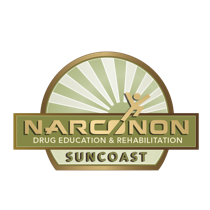The Real Walking Dead
New Study Finds Life Expectancy of Opiate Addicts is Only 4 Years

Grim news is always on the horizon during today’s opiate problem. The situation worsens a little bit each day as more people overdose, more people become addicted, and more people take their first painkiller. I still remember the first time I took a Vicodin. I can remember it clear as day; the weather outside, the smell in the room, and the feeling of adrenaline as I swallowed that first tablet. I felt adrenaline because a small part of me knew I was doing something that I knew I shouldn’t be doing. I had met people who were heroin addicts who started off doing the same thing I was doing… taking a small, yellow pill at the suggestion of someone else as a means of “feeling good.” Fast-forward 10 years and I definitely didn’t feel good. I didn’t feel good about what I was doing and what I had become. And what I had become was a lying, stealing, manipulative heroin addict. Because at one point, the pills didn’t cut it anymore and the heroin seemed to do “just fine.” While going through that, I felt like the loneliest person in the world, but the reality is that there were thousands if not tens of thousands of other people who made the same mistakes I had made and were pretty much in the exact same position as I was.
One of the biggest problems we have today is the opiate crisis and new studies are finding out how truly bad the situation really is. A recent study conducted by UCLA has found that the average life expectancy of an opiate addict not involved in some sort of addiction treatment is about 4 years. So, those of you who have family members who are using opiates, let me ask you, how much time do they have left? For those of you are using opiates yourselves, how long have you been using?
This study specifically aimed to research the mortality rate of opiate addicts. The study compared the death rates of addicts involved in the general healthcare setting, i.e. seeing doctors and practitioners and possibly being put on medications and going about their daily lives versus addicts who became involved with a recovery setting, whether it be a rehab or clinic.
Professor of psychiatry and behavioral sciences at the David Geffen School of Medicine at UCLA, Yih-Ing Hser said:
“The high rates of death among patients with opioid use disorder in a general health care system reported in this study suggest we need strategies to improve detection and treatment of this disorder in primary care settings.”
The study analyzed healthcare records for about 2,500 opiate users between 2006 and 2014 and found that 18.1% of the study population was dead by the end of the study.
These findings are alarming and unfortunately, not surprising. Working in drug rehab as long as I have, I know that the general healthcare setting doesn’t work for many addicts and that primary care, like treatment centers, are necessary to get a person clean from drugs and onto the road to a better life. Don’t make the mistake of thinking rehab doesn’t work and they can just do it at home. Drug rehab is necessary. Don’t let yourself or your loved one become a statistic. Get them into treatment as soon as possible because time may be running out.
Sources Used:
https://www.upi.com/Study-Opioid-addiction-increases-risk-of-death-tenfold/6701492789598/
